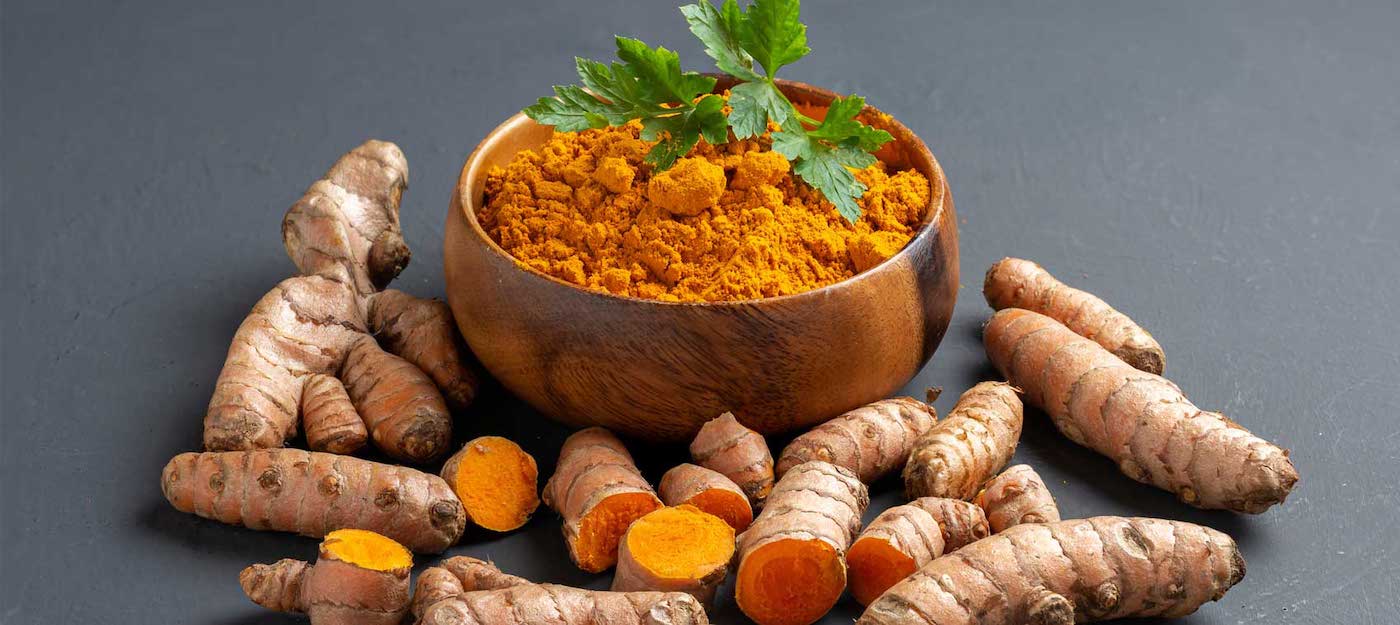
I have been interested in curcumin’s effects on the brain since I read an article 20 years ago about the exceptionally low incidence of Alzheimer's disease in India. It was speculated that this may be attributed to the population’s high consumption of turmeric (Curcuma longa), an ingredient in curry and other spices popular in Indian cuisine.
After reading up on turmeric, curcumin (its most active constituent), and their extraordinary anti-inflammatory and antioxidant properties, I went on an Indian food binge. I also began eating powdered turmeric by the spoonful, which was quite unpleasant—imagine a mouthful of pungent yellow powder. It goes without saying that I was thrilled when turmeric and curcumin supplements became available.
We’ve come a long way since then. More than 15,000 scientific studies have been published on curcumin, and it is now one of the most popular and versatile herbal supplements. Curcumin has been shown to help reduce joint and muscle pain and support positive improvements in markers of metabolic syndrome.
What I want to focus on, however, are the benefits of curcumin for brain health.
Curcumin & Inflammation
Inflammation is your immune system’s response to injury or infection and a vital part of the healing process. Once a viral or bacterial infection is under control or an injury is on the mend, inflammation subsides.
Unfortunately, sometimes inflammation doesn’t subside—and then it turns from friend to foe. Chronic inflammation interferes with normal function, damages tissues, and increases your risk of disease.
Like immune cells anywhere in the body, the specialized immune cells in your brain and spinal cord, called the microglia, are activated as needed to facilitate healing. Overactivation, however, leads to persistent neuroinflammation, marked by elevated levels of cytokines and other proinflammatory signaling molecules as well as oxidative stress.
A high degree of neuroinflammation is linked with numerous neurological disorders, ranging from brain fog and depression to neurodegenerative diseases like Alzheimer's and Parkinson’s.
Where does curcumin fit in? This natural compound helps to support healthy neuroinflammation.
Curcumin for Brain Fog & Mild Memory Problems
Do you feel like your memory isn’t what it used to be? How about brain fog or concentration difficulties? Curcumin may help.
Researchers from UCLA conducted a study involving volunteers over age 50 with mild memory complaints. After administering tests of cognitive function, they randomly divided the participants into two groups and gave them curcumin supplements or placebo capsules to take daily for 18 months.
When they were reevaluated, the group that had taken curcumin scored significantly better on tests of memory and attention. They also reported improvements in mood. No improvements were noted in the placebo group.
What About Alzheimer’s Disease?
The UCLA researchers also performed before-and-after PET scans—an imaging test of the brain—on most of the study participants. Compared to those in the placebo group, the volunteers who had been taking curcumin had markedly lower accumulations of beta-amyloid and tau, the toxic proteins that are a hallmark of Alzheimer’s.
This is big news, folks! It suggests that, in addition to reducing neuroinflammation, curcumin also discourages the buildup of senile (amyloid) plaques, which litter the brains of patients with Alzheimer's. These plaques further activate the microglia and ramp up neuroinflammation and oxidative stress, which results in neuronal death, brain atrophy, and increasingly severe cognitive impairment.
It is premature to say that curcumin may be our best hope for preventing this devastating disease—let alone positioning it as a treatment. But given the poor performance of pharmaceuticals, curcumin is certainly a contender.
Depression, Inflammation & Curcumin
Because neuroinflammation is a factor in depression, curcumin has also been studied as a potential therapy for this common mood disorder.
A meta-analysis of placebo-control trials concluded that supplemental curcumin did indeed reduce symptoms of depression—and in several studies, it reduced anxiety as well.
In another clinical trial, Indian researchers compared the effects of Prozac, an antidepressant medication, supplemental curcumin, or a combination of the two in patients with major depression. When the patients were reevaluated six weeks later, symptom improvements were similar in all three groups
A Bright Future
Curcumin is also being studied as a therapy for the prevention and treatment for other neurological disorders, including:
- Neurodegenerative diseases: Early research points to potential benefits for Parkinson’s, Huntington’s, and multiple sclerosis.
- Traumatic brain injury (TBI): Brain trauma triggers extreme microglial activation and a cascade of neuroinflammation and oxidative stress. Animal studies suggest a role for curcumin in brain repair by inhibiting neuroinflammation and possibly promoting neurogenesis (the formation of new brain cells).
- Brain tumors: Because of its anti-inflammatory and anticancer activity, curcumin shows promise as an adjunct therapy for brain tumors such as glioblastoma.
It’s Hard to Get Enough Curcumin from Diet Alone
The average daily intake of turmeric in India is about 2,000 mg, and 5–10% of that (roughly 125 mg) is curcumin. Most of us would be hard pressed to get anywhere near that much in our diet.
There’s also a well-recognized problem with bioavailability. It’s not that turmeric/curcumin is poorly absorbed, rather that it is rapidly removed from the body, leaving little free curcumin in the blood.
In India, the bioavailability issue is sidestepped by eating turmeric with black pepper plus oil or ghee (clarified butter) or by drinking “golden milk,” a popular mixture of turmeric and other spices in warm milk.
Because most of our diets don’t contain much curcumin, I also recommend taking a highly bioavailable turmeric supplement to support brain health. You want to look for one with a delivery system that maintains stability of the active ingredients and is able to increase blood levels.
Some products do that by combining turmeric or curcumin with piperine (the main constituent of black pepper) to enhance bioavailability. Others include phytosomes, or encapsulation with lipids or curcumin nano particles, to increase absorption.
Whatever supplement you choose, take it as directed and with a meal for the best absorption.


